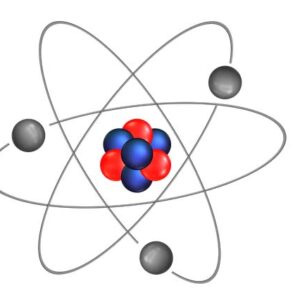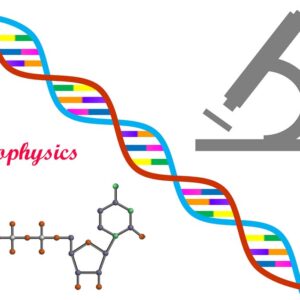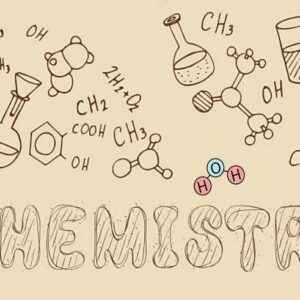
The scientific study of the composition, synthesis, characterisation and use of materials is known as materials chemistry. It includes a broad range of academic fields including as engineering and materials science as well as inorganic organic and physical chemistry.
The following are some of the major fields of study in materials chemistry:
- Synthesis: The creation and development of new materials with specified qualities and purposes include the utilisation of techniques like solid-state synthesis and self-assembly as well as chemical processes to create new substances.
- Characterization: The investigation of a material’s structure, composition and performance, as well as its physical and chemical properties, utilising methods including spectroscopy, microscopy and X-ray diffraction.
- Processing: The study of how to shape, mould and work with materials to produce desired qualities including the application of methods like electrospinning, casting and extrusion.
- Properties: The investigation of a material’s mechanical, electrical, magnetic, optical and thermal behaviour under various situations.
- Functional materials: The study of materials with specific purposes, such as energy storage materials, sensors and catalysts
- Nanomaterials: The study of substances with nanometer-scale dimensions including their special traits and possible uses in industries including electronics, medicine and energy
- Biomaterials: The study of substances utilised in biological and medical devices such implants drug delivery systems and diagnostic equipment.
- Composites: The study of materials that contain two or more separate components, such as fiber-reinforced plastics, as well as their characteristics and uses
- Polymers: The study of big molecules consisting of repeating units, such plastics, as well as their characteristics and uses
- Ceramics: The study of inorganic, non-metallic substances including glass and ceramics as well as their characteristics and uses.
- Metals and alloys: The study of metallic materials, their properties and uses in fields including transportation and aircraft.
- Energy materials: This includes batteries, fuel cells and solar cells materials that are used to produce and store energy.
- Electronic materials: the study of the characteristics and uses of materials used in electronic devices such as semiconductors and superconductors.
- Surface science and interfaces: The examination of the characteristics and conduct of substances at the boundary between two phases such as solid-liquid or solid-gas.
- Advanced characterisation techniques: The study of how to analyse materials’ properties using cutting-edge methods like X-ray and electron microscopy, spectroscopy and theoretical modelling.
- Green materials chemistry: The study of the creation, advancement and use of eco-friendly and sustainable materials and technologies in the synthesis, characterisation and processing of materials
- Materials for energy conversion and storage: The study of materials used in thermoelectrics, solar cells, fuel cells and batteries among other energy conversion and storage technologies.
- Materials for environmental applications: The study of materials used in environmental processes such carbon capture and storage, air purification and water filtration.
- Advanced functional materials: The study of advance functional materials including smart materials, self-healing materials and bio-inspired materials, as well as their characteristics and uses
- Materials for biomedical applications: This field of study examines materials used in biomedical devices such tissue engineering, biosensors and drug delivery systems.
- Materials for nanotechnology: This field of study examines the characteristics and uses of materials for nanotechnology such as nanoparticles, nanocomposites and nanostructure materials.
- Materials for quantum technology: The study of materials for quantum technology including superconductors, topological insulators and quantum dots as well as their characteristics and uses.
- Materials for energy-efficient and sustainable technology: Researching materials for technologies like energy-efficient homes, vehicles and consumer goods
- Materials for advanced manufacturing: This field of study examines the characteristics and uses of materials for advanced manufacturing processes such additive manufacture, nanofabrication and 3D printing.
- Materials for catalysis: The study of substances employ in catalytic reactions such as catalysts for chemical synthesis pollution abatement and energy conversion, is known as the first type of material for catalysis.
- Data storage materials: the research of data storage material such as magnetic and optical storage media, as well as their characteristics and uses.
- Materials for photonics: This field of study examines the properties and uses of materials use in optics and photonics, such as those used in solar cells, lasers and optical fibres.
- Materials for aerospace and defence: This field of study examines the qualities and uses of materials used in aerospace and defence, particularly those used in aeroplanes and spacecraft.
- Materials for transportation: The study of materials used in transportation, such as those for cars, batteries and fuel cells, as well as their qualities and applications.
- Materials for high-temperature and extreme situations: This field of study examines the properties and uses of materials for high-temperature and harsh conditions such as those used in nuclear reactors, internal combustion engines and aerospace applications.
- Materials for energy collecting and conversion: This field of study examines the use of materials to convert energy from various sources such as thermal, wind and solar energy into forms that can be used. This contains components used in thermoelectrics, wind turbines and solar cells.
- Electrochemical materials: are studied including their properties and uses in electrochemical systems including batteries, fuel cells and electrocatalysts.
- Materials for superconductivity: This field of study examines the characteristics and uses of materials that show superconductivity, a phenomena in which electrical resistance is zero.
- Materials for sensing and imaging: This field of study examines the characteristics and uses of the materials used in sensors and imaging equipment, such as infrared sensors.
- Quantum computing materials: the study of quantum computing materials such as superconducting qubits and their properties and uses.
- Materials for artificial intelligence and machine learning: The study of the properties and uses of materials used in artificial intelligence and machine learning such as spintronics and neuromorphic computing.
- Terahertz materials for 5G and 6G technology: This field of study examines the characteristics and uses of terahertz materials which are used in 5G and 6G technology.
- Materials for energy storage and distribution: This field of study examines the qualities and uses of materials used in energy storage and distribution such as hydrogen storage materials.
- Materials for water treatment: The study of materials, such as adsorbents, catalysts and membranes and their properties and uses in the treatment and purification of water.
- Air purification materials: the investigation of air purification materials including catalysts and adsorbents as well as their characteristics and uses.
- Chemical processing materials: The study of chemical processing materials, such as catalysts, adsorbents and membranes as well as their properties and uses.
- Materials for recycling: The study of the characteristics and uses of materials used in recycling such as membranes, adsorbents and catalysts.
- Security materials: The study of security materials, such as smart materials and their properties and uses.
- Materials for smart grid: Research the characteristics and uses of materials utilised in smart grids, such as energy storage materials.
- Materials for smart cities: Studying the materials utilised in smart cities, such as sensors and energy storage materials as well as their characteristics and potential uses.
- Artificial photosynthesis materials: the research of photocatalysts and other artificial photosynthesis-related materials include their properties and uses.
- Materials for artificial leaves: Researching the characteristics and uses of materials used in artificial leaves such as photocatalysts.
- Materials for hydrogen production: The study of the characteristics and uses of the materials used in the generation of hydrogen such as membranes and catalysts.
- Materials for energy efficiency: The study of the characteristics and uses of materials used in energy efficiency such as thermoelectrics.
- Materials for Energy Conservation: The study of insulators and other materials used in energy conservation as well as their properties and uses.
- Materials for energy management: Research the characteristics and uses of materials used in energy management such as smart materials.
- Materials for energy education: Studying the materials used in energy education, such as teaching kits and simulations as well as their characteristics and potential uses.
- Materials for energy research: This field of study examines the characteristics and uses of materials used in energy research such as catalysts, membranes and sensors.
- Materials for energy innovation: Studying the materials utilise in energy innovation, such as cutting-edge materials and technologies as well as their characteristics and potential uses.
- Materials for energy storage and distribution: This field of study examines the qualities and uses of materials used in energy storage and distribution such as hydrogen storage materials.
- Materials for energy efficiency in buildings: The study of the characteristics and uses of the materials used in buildings for energy efficiency such as insulation and smart windows.









